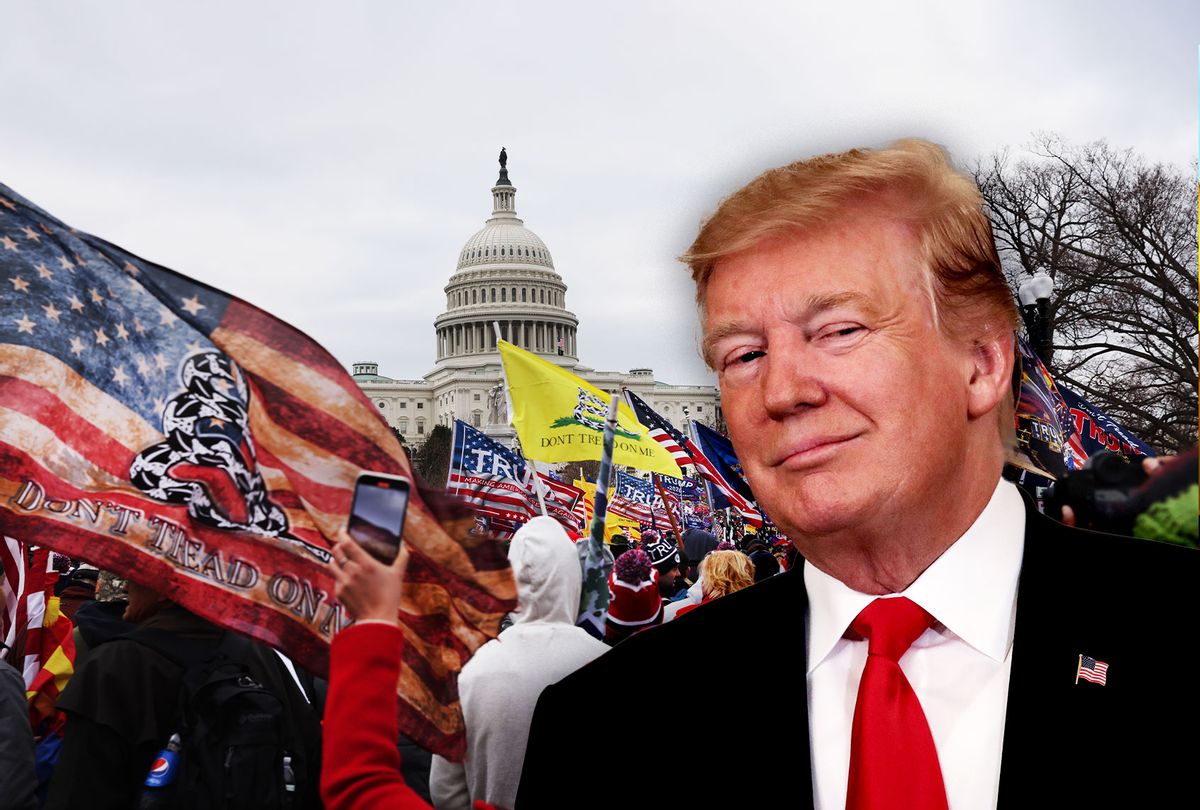Investigators are ramping up efforts to penetrate the "privilege firewall" former President Donald Trump has used to avoid scrutiny of his Jan. 6 discussions in "secret court proceedings" in D.C., according to CNN.
The Justice Department last week asked a federal judge to force Trump White House counsel Pat Cipollone and deputy White House counsel Patrick Philbin to testify despite Trump's efforts to block them from answering questions before a grand jury.
Trump has cited executive and attorney-client privilege to prevent disclosures and delay criminal investigations but the DOJ has already been successful in breaking through the privilege firewall, according to the report.
Prosecutors over the past three weeks have scored "significant court victories" in secret proceedings, securing answers from former Mike Pence advisers Greg Jacob and Marc Short. Jacob's testimony on October 6 is the "first identifiable time" that Trump's privilege firewall has been pierced in the criminal investigation, according to CNN. Short had his own grand jury appearance a week later.
All four former officials previously declined to answer some questions about discussions they had with Trump before the former president quietly lost court battles related to testimony from Jacob and Short before the chief judge of the trial-level U.S. District Court in D.C. last month, according to the report. Judge Beryl Howell refused to put the two men's testimony on hold while Trump's lawyers appealed, though the D.C. Circuit Court of Appeals is still considering legal arguments surrounding the privilege claims.
Jacob, who testified before the House Jan. 6 committee, has been particularly vocal in condemning Trump's actions after the election and his scheme with attorney John Eastman to block the certification of President Joe Biden's win on Jan. 6, calling the lawyer a "serpent in the ear" of the president. After Trump supporters stormed the Capitol, Jacob wrote to Eastman, "thanks to your bullshit, we are now under siege."
"There is almost no idea more un-American than the notion that any one person would choose the American President, and then unbroken historical practice for 230 years, that the vice president did not have such an authority," Jacob testified to the House panel in July.
Prosecutors are now seeking to compel testimony from Cipollone and Philbin, who had extensive discussions with Trump leading up to the Jan. 6 Capitol riot. Cipollone previously appeared before the House panel but declined to disclose his discussions with Trump, citing privilege. The two men's roles in the White House counsel's office raise questions about whether Trump can "claim confidentiality over the legal adviser they gave him" and whether a former president can invoke executive privilege to "hold off criminal investigators, "CNN reported.
Want a daily wrap-up of all the news and commentary Salon has to offer? Subscribe to our morning newsletter, Crash Course.
The federal grand jury has also subpoenaed former White House officials Mark Meadows, Eric Herschmann, Dan Scavino and Stephen Miller as well as campaign adviser Boris Ephsteyn, who could also cite privilege to decline to answer questions in the probe. Trump has similarly used both executive and attorney-privilege claims to impede other probes, like the House Jan. 6 investigation, the FBI investigation into national security documents found at his Mar-a-Lago residence and the Fulton County, Georgia district attorney's investigation into election meddling. Some privilege questions have remained unresolved and could eventually reach the Supreme Court.
President Joe Biden has repeatedly declined to assert executive privilege over Jan. 6 related information and federal prosecutors who investigated former Presidents Bill Clinton and Richard Nixon were also able to overcome attorney-client privilege claims for White House counsel.
The DOJ is "getting A LOT done in under-seal proceedings," tweeted CNN legal reporter Katelyn Polantz.
"In a lot of ways, this is the ballgame for the January 6th criminal prosecutions and the grand jury investigation around Donald Trump and after the election," Polantz said on CNN, noting that investigators have gotten some answers from former officials but Trump is still "trying to block those final answers" from the grand jury.
Andrew Weissmann, a former federal prosecutor who served on special counsel Bob Mueller's team, said the report was a sign that the DOJ is pressing ahead in its probe of Trump's actions.
"Really important development," tweeted former U.S. Attorney Harry Litman, adding that the DOJ could also turn to the "biggest prize who has dodged testimony to date based on executive privilege argument: Mark Meadows," Trump's former chief of staff.
"Litigating privilege issues is some serious effort by DOJ to get to Trump's conversations with his inner circle," wrote former U.S. Attorney Barb McQuade. "You don't do this unless you're determined to turn over every stone."
Read more
about the Jan. 6 probes



Shares